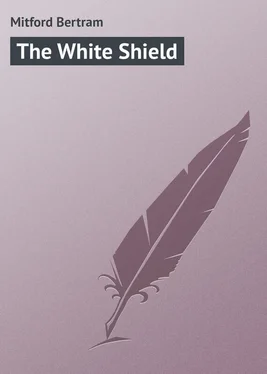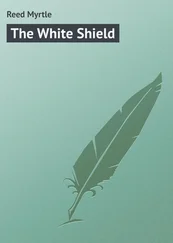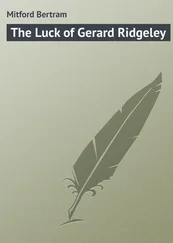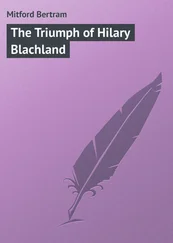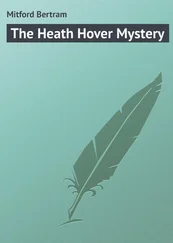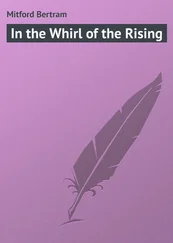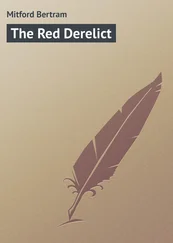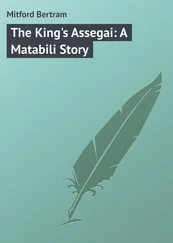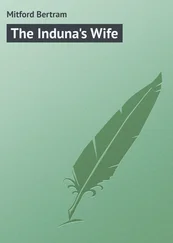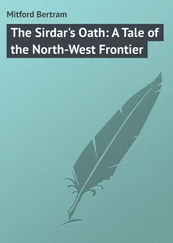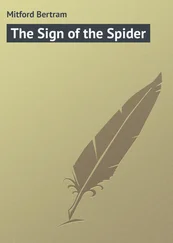Bertram Mitford - The White Shield
Здесь есть возможность читать онлайн «Bertram Mitford - The White Shield» — ознакомительный отрывок электронной книги совершенно бесплатно, а после прочтения отрывка купить полную версию. В некоторых случаях можно слушать аудио, скачать через торрент в формате fb2 и присутствует краткое содержание. Жанр: foreign_prose, на английском языке. Описание произведения, (предисловие) а так же отзывы посетителей доступны на портале библиотеки ЛибКат.
- Название:The White Shield
- Автор:
- Жанр:
- Год:неизвестен
- ISBN:нет данных
- Рейтинг книги:4 / 5. Голосов: 1
-
Избранное:Добавить в избранное
- Отзывы:
-
Ваша оценка:
- 80
- 1
- 2
- 3
- 4
- 5
The White Shield: краткое содержание, описание и аннотация
Предлагаем к чтению аннотацию, описание, краткое содержание или предисловие (зависит от того, что написал сам автор книги «The White Shield»). Если вы не нашли необходимую информацию о книге — напишите в комментариях, мы постараемся отыскать её.
The White Shield — читать онлайн ознакомительный отрывок
Ниже представлен текст книги, разбитый по страницам. Система сохранения места последней прочитанной страницы, позволяет с удобством читать онлайн бесплатно книгу «The White Shield», без необходимости каждый раз заново искать на чём Вы остановились. Поставьте закладку, и сможете в любой момент перейти на страницу, на которой закончили чтение.
Интервал:
Закладка:
I fancied Umzilikazi looked suspicious.
“Not so, Untúswa,” he said. “I will satisfy my own eyes, my own ears, and then – Hearken now. Take thy weapons, for it is time to start. Walk in front of me until we are without the gates. If we meet any man, harm him not. But any man who recognises the King, with the first words of royal greeting which pass his lips, slay him instantly and without a word, be he whom he may. I would not be known to have moved in this matter.”
Umzilikazi took a broad-bladed spear in his hand and a black shield, of smaller size than those used in war. It happened that I was armed in like manner, except that I had a large knobstick as well. Thus equipped, we started upon our adventure.
Chapter Three.
The Conspiracy of Ncwelo’s Pool
We passed out of the isigodhlo by a secret way; known to and used by the King alone. The night was not a dark one, for the stars were shining bright and clear, and a waning moon hung low down in the heavens. As we stepped rapidly forth across the open plain we could make out the dim outline of the great kraal lying silent and slumbrous. Suddenly the figure of a man rose up, right across our path.
Now we were facing the setting moon, and the man was advancing stealthily in the direction of the kraal, wherefore we met. His face was in darkness. Not so ours, however, and as he recognised the lion countenance of the Great Great One, thus walking abroad by night, he was seized with a mighty fear, and, uttering the Bayéte , he crouched low – hiding his face that we might pass him. And he had looked on the things of this world for the last time, for the words of the Black Elephant were fresh in my ears. This man had recognised the King – had spoken the royal greeting – wherefore, as he crouched, the blade of my broad umkonto drove through between his shoulders, coming out far through his breast. So he died there in the night, uttering no further sound.
“That was well done, Untúswa,” whispered the King. “I have but one word, and now there is one umtagati the less. Proceed!”
So we stepped forward again, leaving the slain man lying there; and as we held on our way, I leading, and gripping my spear, all on the alert lest we should meet others prompt to recognise the King, we heard before and around us the howling of hyenas and the yelping of jackals, with now and again the thunder roar of a lion at no very great distance, also a strange and unearthly wail, which could come from no beast – but only, it might be, from the sad ghosts of those slain, who were weeping over their own shattered bones above the place of slaughter.
“This is a night for abatagati indeed,” growled the King. “Yet there will be more ghosts to weep, Untúswa, after our visit to Ncwelo’s pool.”
“ Gahle, Nkulu ’nkulu ,” I whispered. (Gently, Great Great One.) “Yonder is Ncwelo’s kraal. If his dogs hear us, will not their tongues be swift to put the conspirators to flight? Yonder by the shade of the trees must we pass, for they whom we seek will have eyes watching the plain in all directions.”
“Lead on, Untúswa,” whispered the King.
Some distance round, under the shade of the trees, had we to travel, for we dared not cross the open, though to do so were far more direct. Au ! it was black where the light of the moon and the stars could not pierce, and we had to writhe our way as silently as serpents – indeed more silently, for twice the rustle of some great serpent uncoiling himself to withdraw slowly from our path, and his shrill angry hiss at being disturbed, caused us to pause in order to allow him to retreat.
At length I, who was leading, halted and held up a hand. It was not a sound that I had heard in front through the black gloom, but there had floated to my nostrils on the clear air of the night an odour. It was the smell of a horse. Now of horses among us there were but few – all belonging to the King – and at Ncwelo’s kraal were none. The Great Great One perceived it too, for just then a shaft of moonlight between the tree-tops revealed his face, and upon it was the eager, smiling, terrible expression I had seen there more than once, but usually when leading us into the very thickest of the battle. Yet neither of us spake, and we resumed our way, though tenfold more cautiously than before.
Again I held up my hand. We were now where the ground ended. Before were several jagged pinnacles of rock; in front of these – air. We had made our way by a circuit to the high ground overlooking the back of Ncwelo’s pool.
There it lay, the pool – its surface glistening in the moonlight, reflecting the stars – lying beneath us at a depth, it might be, of eight or ten times the length of a man; and the murmur of voices rose to our ears, together with the occasional stamp of a horse and the sound as of the shaking of a saddle. The grasp of the King’s hand tightened on my shoulder, as we drew ourselves yet nearer to the brink of the rocks and peered cautiously forth.
“Listen, Untúswa,” he breathed into my ear. “Mark well the voices, lest the darkness prevent us from seeing the speakers. Ha!” he added, “that, at any rate, is a voice thou shouldst know.”
And there in truth, Nkose , Umzilikazi spoke no lie; for the voice was that of Ntelani, my father.
It was raised in reproof. Someone at that moment was striking a light – with the stone fire-makers the white men used at that time – and there arose to our nostrils the odour of tobacco being smoked in a pipe. But while this light still flamed we made out with the greatest plainness the faces of six men.
Yes, in that flash we saw them all, for they were immediately below us. Two were white men, with rough faces covered with thick shaggy beards. They wore large hats and clothing made of dressed leather, and were armed with knives and long guns. They were tall, big men, but slow and heavy of speech and aspect. We knew them in a moment for Amabuna (Boers).
The other four were our own people: Tyuyumane, an influential induna and a relation of the King; Notalwa, the head of our witch doctors; Senkonya, another induna , and my father Ntelani. The latter was speaking:
“I fear lest the odour of gwai thus burned spread far into the stillness of the night, for none of us Amazulu use our gwai in such wise. Wherefore it will be known that white men are about.”
But that Ibuna answered roughly that he cared nothing if it reached the nostrils of Umzilikazi himself, save that he uttered the King’s name “Selekas,” so badly did that people speak with our tongue.
The other, however, reproved him, which was well, for our people, traitors though they were, liked not to listen to that sort of talk.
“And now, Ntelani,” went on this man, speaking softly and pleasantly, “if we help you in the matter, how do you propose to carry out the change?”
“Thus,” replied my father, having paused awhile to take snuff and think. “Umzilikazi is great – he is a lion – a buffalo bull – an elephant. The young men are with him. The young men are all his dogs, for he gives them plenty of fighting and abundance of spoil. Moreover, he allows them to tunga 3 3 Tunga means “Sew” – the head-ring – i.e. marry.
while yet children, and exalts them to be izinduna over the heads of their fathers. Their fathers are to be their dogs. He loves not old men as izinduna . He creates izinduna out of children like himself.”
Now the King pushed me as we lay and listened, for both of us understood this speech, which was not even dark. Then my father went on: —
“Here is my plan, leader of the Amabuna. We must have a King, but when the Elephant who now trumpets is henceforth trumpeting in black night the warriors will demand a leader, and no man is there who holds their hearts like one, a lion-cub which I have bred, for he is fearless in war, and him they will have to reign over them. This wish they must have granted, if only to accustom them to the change. He shall be King – King for a day – ah! ah!”
Читать дальшеИнтервал:
Закладка:
Похожие книги на «The White Shield»
Представляем Вашему вниманию похожие книги на «The White Shield» списком для выбора. Мы отобрали схожую по названию и смыслу литературу в надежде предоставить читателям больше вариантов отыскать новые, интересные, ещё непрочитанные произведения.
Обсуждение, отзывы о книге «The White Shield» и просто собственные мнения читателей. Оставьте ваши комментарии, напишите, что Вы думаете о произведении, его смысле или главных героях. Укажите что конкретно понравилось, а что нет, и почему Вы так считаете.
